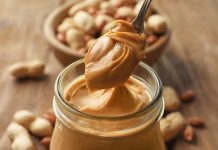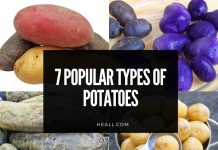Learn which studies have actually shown a true health risk and others that have simply been exaggerated without any official, conclusive evidence.
Many people wonder if what they read or hear on the news is true about the ingredients in food. Some of the stories and so-called studies are just that. Myths that this article disproves as no official studies with conclusive evidence were found. However, some of the risks are real and dangerous. Learn which ones to watch for and which ones to keep following up on official studies for further results in health risks.
Table of Contents
Food Ingredients Harmful by Allergy or Cholesterol Based
Monosodium Glutamate (MSG)
MSG is used to add flavor to food.
While this ingredient has no adverse studies showing harmful affects, some people have food intolerance to this ingredient. Those with this allergy should avoid any foods with this included. Side effects of allergies are increase in headaches, increase in the pain threshold of such headaches and other allergic reactions.
Trans Fat
Trans fat is unsaturated fat with trans-isomer (E-isomer) fatty acid(s) that increase LDL cholesterol levels while decreasing HDL cholesterol which leads to an increase in risk of heart attacks, heart disease and strokes.
Other adverse affects are Alzheimer disease (1), obesity (2) and infertility (3).
Artificial Ingredients and Additives Used in Food
Food Coloring
Artificial dyes may contribute to a reduction in IQ and an increase in behavioral problems, especially in children. One quote is, “For a food additive that does not provide any health or safety benefit whatsoever, there should be a very strict standard for safety. Food dyes do not meet that standard,” CSPI Executive Director and study co-author Michael F. Jacobson, PhD,” taken from an article at WebMD.
Sulphur Dioxide
This additive’s toxicity is shown by the fact that it is illegal to be used in raw food such as fruits and vegetables. There have been reports of blood pressure related issues as well as anaphylactic shock. It is also known to increase or aggravate asthmatic conditions according to Pubmed.gov.
Potassium Bromate
Studies in animals have shown that it can cause cancer. “It has been demonstrated that KBrO3 induces renal cell tumors, mesotheliomas of the peritoneum, and follicular cell tumors of the thyroid.”(4) (www.ncbi.nlm.nih.gov)
Preservatives Food Manufactures Use in Food
Sodium Sulphite
Found in processed foods. Some people have an allergy or sensitivity to sulphite. These people may experience an increase in headaches, rashes, breathing problems or other allergic reactions. “The FDA estimates that one out of 100 people are sensitive to the compounds. A person can develop sensitivity to sulfites at any time in life, and… a reaction can be mild or life threatening.”(5) (WebMD.com)
Sodium Nitrate/Nitrite
When researched, this ingredient is not only used in food but in fertilizers. That brings the warning flag up all on its own. What does fertilizer and food have in common? It’s known to cause DNA damage and increased cellular degeneration. “Increased levels of nitrates and deaths from certain diseases including Alzheimer’s, diabetes mellitus and Parkinson’s are also known. Nitrosamines, formed in cured meats, containing sodium nitrate and nitrite, have been linked to gastric and esophageal cancer and a higher risk of colorectal cancer.”(6) (Varying sources researched through wikipedia.org)
BHA and BHT
Butylated hydroxyanisole and butylated hydrozyttoluene.
“The oxidative characteristics and/or metabolites of BHA and BHT may contribute to carcinogenicity or tumorigenicity; however the same reactions may combat oxidative stress,” (chemistry.about.com) There are ongoing studies to further dwell into the statistical safety.
Mythical Exaggerations on Food Ingredients and Affects
HFCS
High Fructose Corn Syrup or corn sugar is shown to increase LDL cholesterol. However, so does most excess intake of sugars. The adverse affects of this ingredient have been exaggerated. “The HFCS used in most foods and beverages is similar to regular table sugar in terms of sweetness, calorie content, and composition…[and] the only real connection between diet and weight gain and obesity is consuming more calories from any source than the amount burned by the body in daily living.”(7)
Sweeteners
Any artificial sweeteners that have aspartame, saccharin, acesulfame-K, acesulfame-potassium and sucralose have been in question as to the health risks. Artificial sweeteners have many myths mentioned about them but there have been numerous studies relating to the safety of their consumption. However, since these studies are inconclusive, some are not recommended for women who are pregnant or breastfeeding. Until further evidence is presented otherwise, this remains to be safe except for those who have intolerance to it.
References Used in this Article
- Morris MC, Evans DA, Bienias JL, Tangney CC, Bennett DA, Aggarwal N, Schneider J, Wilson RS (February 2003). “Dietary fats and the risk of incident Alzheimer disease”. Arch Neurol 60 (2): 194–200. doi:10.1001/archneur.60.2.194.
- “Six years of fast-food fats supersizes monkeys”. New Scientist (2556): 21. 2006-06-17.
- Chavarro Jorge E, Rich-Edwards Janet W, Rosner Bernard A and Willett Walter C (2007-01). “Dietary fatty acid intakes and the risk of ovulatory infertility”. American Journal of Clinical Nutrition 85 (1): 231–237.
- (Environmental Health Perspectives: National Institute of Environmental Health Science)
- Sulfite Sensitivity
- Sodium Nitrate
- Frances H. Seligson, Ph.D., R.D. Adjunct Associate Professor, Department of Nutritional Sciences, the Pennsylvania State University. Food, Nutrition, & Science from The Lempert Report, April 26, 2010



